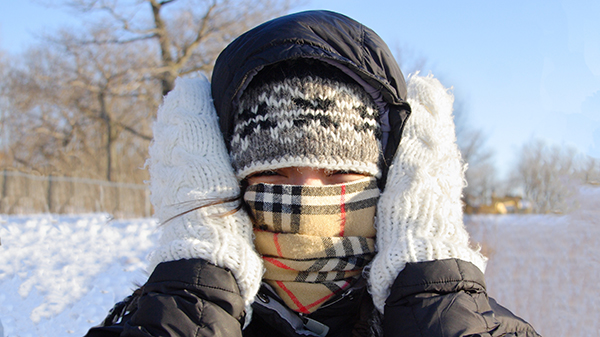
Winter temperatures in Winnipeg can become very dangerous. It is important to stay safe when it gets very cold.
“Cold weather is something we may take for granted in Winnipeg, but it is a hazard that we should all take seriously and prepare for,” said Mike Olczyk, the City’s Emergency Management Coordinator.
Dress properly
You should try to wear layers of clothing to protect yourself from the cold. These clothes must be dry. It is essential to cover all exposed skin to avoid frostbite and hypothermia.
Consider making your outer layer windproof or waterproof. When taking part in winter activities, bringing extra clothes can help you stay warm and dry. Keep a winter survival kit with clothes, food, and a first aid kit in your vehicle for added protection.
Know the signs
Frostbite occurs when your skin is unprotected outside for too long. Frostbite commonly spreads on toes, fingers, noses, and ears. Symptoms of frostbite include blisters, numbness, and hard skin.
If you notice symptoms, get out of the cold and warm the affected area gradually. Never try to break blisters as it can lead to infection. Get medical help if you notice any frostbite symptoms.
Hypothermia happens when your body loses heat faster than you can produce it. Shivering, confusion, difficulty speaking, and stiff muscles are common symptoms. If you think you or someone you know is experiencing hypothermia, get inside and get medical help. Keep moving, dress properly, and get inside to avoid hypothermia.
“Be sure to check on neighbours, older adults, and anyone who may be vulnerable during periods of extreme cold. We can all work together to help keep each other safe,” said Olczyk.
Keep your home safe
Keeping your home warm is important in the winter, but fuel-fired heating devices like stoves, fireplaces, and heaters can release carbon monoxide if used improperly or if they malfunction. Carbon monoxide can be deadly. It is a non-irritating gas that has no taste, colour, or smell. Make sure your carbon monoxide alarms are working and do not use outdoor heating devices inside your home.
Blocked vents in your house can lead to carbon monoxide poisoning. Be sure the vents of your stove, furnace, and fireplace are clear of any snow or blockages.
Stay informed
Before heading outside, make sure to check the weather forecast so you can be prepared. Be mindful of any storm and/or extreme cold warning and adjust your plans accordingly.
Originally published December 10, 2024
